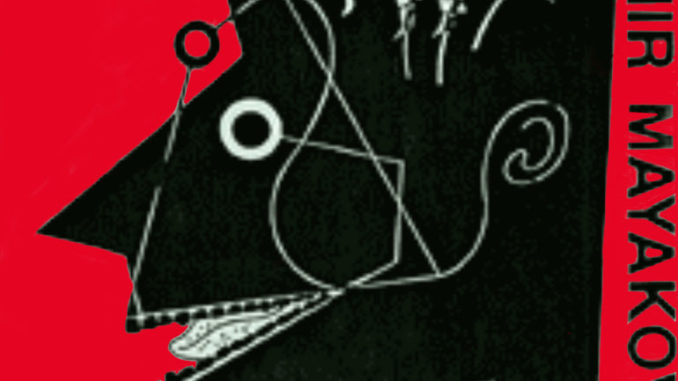
Review Fix chats with director  Ashley Wren Collins, who discusses the upcoming production and how being a part of it has affected her.
About the Production:
Medicine Show Theatre presents Vladimir Mayakovsky’s 1929 play, The Bedbug, a biting romp through the Soviet bourgeoisie complete with philistines, party fat cats and profiteers. Visiting artist Ashley Wren Collins directs this production as part of Medicine Show Theatre’s (MST) acclaimed Season of Russia. Collins received her MFA from the American Repertory Theater / Moscow Art Theatre School IATT at Harvard.
Vicious in its mockery of early Communist society, The Bedbug tells the story of Ivan Prisypkin, a worker who wants to marry into the bourgeoisie and live a life of decadence. But a bizarre accident at his wedding leaves him frozen in a block of ice. Flash forward 50 years in the utopian (not so vaguely communist) future, where passion, vice, and even love is ancient history. A defrosted Prisypkin wakes in this cold new world to find himself a zoo attraction, the bedbug that was accidentally frozen with him now his lone companion.
This production – the first fully staged one in New York since the 1970s – will be performed with an ensemble of 9 actors playing over 90 roles, and honor the zany spirit of the original, while highlighting the paradox of how much and how little has changed in the last 90 years. The show uses Dmitri Shostakovich‘s original score, once thought lost until unearthed from the Soviet state files in the 1990s, as a stepping stone of inspiration for original live incidental music.
Throughout this yearlong 100th anniversary of the Russian revolution, MST has hosted many lively talkbacks following performances to engage audiences by examining issues such as genocide, propaganda and other thorny, but vital and timely topics.
The Bedbug stars Alena Acker, Ashley Asiarae, Michael Bradley, Daniel Robert Burns, Brady Cudmore, Natalia M. Cuevas, Sofie Koloc, Erica Lance, and Perri Yaniv.
Previews begin April 6th; opening night is April 12th. Both previews and performances are Wednesday through Saturday at 7:30pmand Sunday at 3:00pm through May 6th. Visit bedbug.brownpapertickets.com for tickets.
Review Fix: What was the inspiration for this project and the entire Russian-centric series?
Ashley Wren Collins: This season coincides with 100th anniversary of the Russian Revolution. Considering the current political climate of our own country it seemed like a good time to look back at a country that has given us some of the great theater of the 20th and 21st century but also been a leader in artistic repression, propaganda and a certain frivolity when it comes to the quality of life of it’s citizens. We wanted to examine what the revolution and its aftermath really meant, beyond tossing communism onto the scrap heap of history. We wanted to think about totalitarianism and what it means in a modern world. Those who forget history…etc, etc.
We started with the world premiere of a translation of 14 Little Red Huts by Andrei Platonov, a philosopher-playwright often referred to by English language scholars as “The Russian George Orwellâ€. This play is about Stalin’s forcing single-household peasant farmers onto group farms; just one piece of a patchwork quilt of bad policy that resulted in the deaths of millions of Russians, for which Stalin was ultimately responsible.
We then lightened the tone for a mid-winter musical, Mr. Chekhov and Mr. Porter, a whimsical evening of Chekov plays blended with Porter songs to make an eveining of beauty and silliness.
Now we’re zipping back to the 1920s for Vladimir Mayakovsky’s The Bedbug, a zany yet serious piece crafted just as Stalin was coming to power, in 1929. It’s a biting romp through the Soviet bourgeoisie complete with philistines, party fat cats and profiteers.
Review Fix: What’s your creative process like?
Collins: Because Medicine Show grew out of The Open Theater we come to most of our work as a collaboration between the actor, director, writer, and composer. While most theater comes out of a  hierarchic system, we have a system that empowers all the creative forces in a production. It’s often like herding cats but we are a group that don’t much like being told what to do. In other words, “you’re not the boss of me†is a little more true at Medicine Show than at other theaters.
Review Fix: What makes this  [play and season] different or special?
Collins: The Season of Russia has been oddly like coming home for us. I’m not sure if it’s because some of us were originally Russian immigrants or if the strange combination of Russian humor and despair speak to us creatively and are sadly relevant in our current political situation. Whatever the reason we have embraced the work of these Russian writers and they have embraced us too.
Review Fix: What did you learn about yourself as an artist through this process?
Collins: I have been surprised over and over by the humor built into these plays, which on first read, might seem genuinely sad and horrifying. The Chekov plays actually say, “A comedy†but how many times have we seen those plays and found them beautiful and sad and meaningful but not necessarily funny. This year we found the funny. That’s so important as an artist. We want to show different facets of common situations and funny has always been one of my favorites.
Review Fix: What are your ultimate goals for this production and for the future?
Collins: My favorite vision of the future involves a muli-cultural, multi-gendered, multi-generational group of artists joining together to make theater that is both relevant to the changing times and has its roots firmly grounded in the work of our fore-mother, my actual mother Barbara Vann.


Leave a Reply